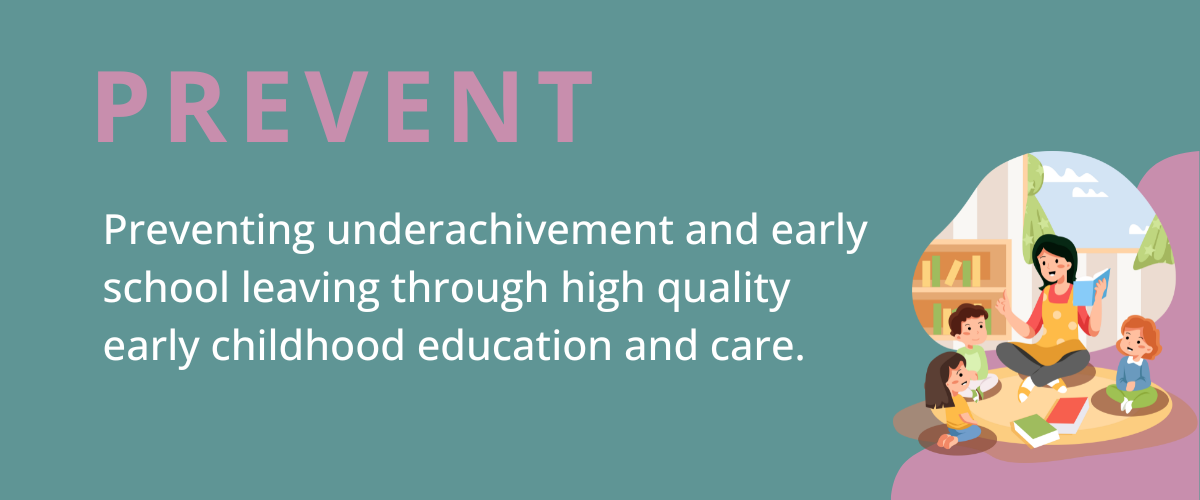
Laying the foundation for lifelong learning
High-quality early childhood education and care (ECEC) lays the foundation for lifelong learning and helps reduce the risk of children being disengaged from school – even before they take root. Research shows that children who experience strong, inclusive early learning environments are more likely to succeed in school, remain engaged, and reach their full potential—benefits that are especially important for children from disadvantaged backgrounds.
Science tells us that high-quality ECEC goes beyond simply providing care; it involves structured, evidence-based practices that support children’s foundational skills (such as literacy and numeracy) in the same way that it tackles well-being. The SCIREARLY framework identifies six indicators of quality, including warm and trusting relationships between teachers and children, interactive and dialogic learning activities, egalitarian relationships with families, and ongoing professional development for practitioners.
Scientific reports and policy recommendations for high-quality early childhood and care
Key elements of high-quality early childhood education and care
SCIREARLY engaged in an open dialogue with children, families, and schools to discuss the results of our scientific work on the elements driving high-quality early childhood education and care in Europe. This document outlines the common themes that emerged from this process, outlining a roadmap for policy action that is backed by science and reflects the lived experiences of those they aim to support. More specifically, it seeks to answer the question: “What key elements should an effective, science-informed early childhood education and care policy promote?”